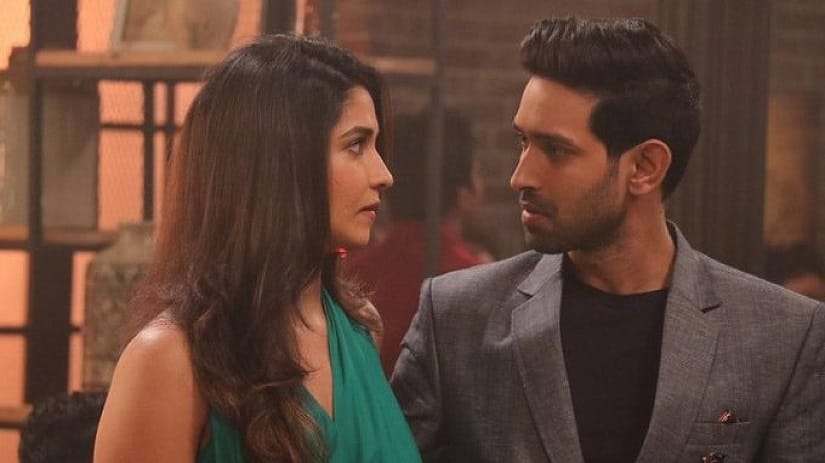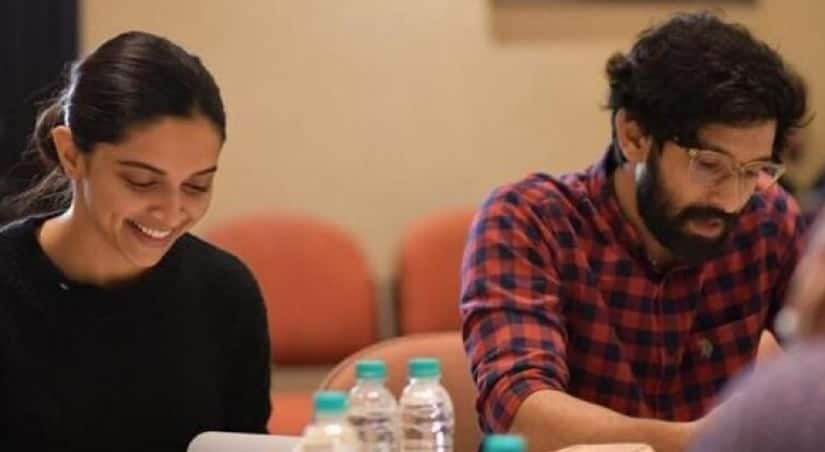From films to TV to the digital world, Vikrant Massey has conquered them all. Be it Devdas Mukherjee in Lootera or Shyam Madan Singh in Balika Vadhu or ferocious gangster Bablu Pandit in Mirzapur, he has played every character with utmost sincerity. Currently shooting for Broken But Beautiful Season 2, Vikrant opened up about his career, the upcoming instalment of the ALTBalaji show and Chhapaak in an exclusive interview with Firstpost. [caption id=“attachment_7107001” align=“alignnone” width=“825”] Vikrant Massey. Image via Twitter[/caption] Congratulations on the success of Criminal Justice and Mirzapur. What’s the key to your success across all platforms? I think that’s really tough to sit back and evaluate on my success. I think it’s for others to do but I’m really grateful. When I was doing television, I always wanted to do films. I always wanted to do better content. We all have experienced that when you wanted to do certain things, but when you’re doing it, it’s almost unbelievable. And same is the case with me. I’m really glad for the love and warmth that people have shown me consistently over these years. That is something that is really heartwarming. But how do I evaluate my success? I think it’s way too early to be talking because I’m still young. I’m just 5-6 films old. The idea is to be consistent; the idea is to cater to a wider audience; and I really don’t want to sit back and evaluate my success, but I just want to say thank you so much at this point in time. You have fought a long battle breaking every stereotype. Like you said, someone told you that “A TV actor can’t make it to Bollywood”. So, what have you learned from your career till now? Yes, it’s true that somebody told me that ‘Arey yaar tu TV karta hai toh TV walon ko filmon mein kaam nahi milta hai’ (Buddy, you do television, and a TV actor doesn’t get work in films). Without naming the person, I clearly remember him, because I’ve worked with him on television. So he used to tell me that TV actors don’t make it into films because it’s a different world. I never took that very positively; it pinched me very hard because I knew that I wanted to but that sort of put me on a back foot. But today, the same person calls me and asks me to be a part of his film. So such a thing happens, and I can’t zero down on one thing that I’ve learned from my life, as I have learned a lot in life. With time, age and experience, everybody evolves as a person. With regards to my profession, with regards to the world of cinema and acting, I’ve learned a lot. The most important thing that I’ve learned is that life’s experiences are the most crucial thing that one really needs to possess, keep them safe. It helps an actor to document it and use it as a tool for your craft. Besides that, I’m still learning, like I always said, I’m at a very initial stage in my career. I’m still figuring things out. What do you enjoy most — a crime drama thriller like Mirzapur or Criminal Justice or something like Broken? Any good writing and anything that involves a bit of giving it back to the society matters to me and gives me an adrenaline rush. I really don’t want to bracket myself into a specific genre. Yes, Mirzapur and Criminal Justice did extremely well. Personally, if you ask me, I did not anticipate this amount of success. Whereas Broken belongs to a very different genre. So I really don’t want to bracket myself. As per my sensibilities, whatever excites me and gives me that blood rush, I opt for it. Relatability is another factor that I look into because by the end of the day, we’re catering to non-cinema people, the normal audiences who want to take a break from their mundane life and probably enrich them with the knowledge or entertain them. What can we expect from Season 2 of Broken? [caption id=“attachment_7106971” align=“alignnone” width=“825”]
 Harleen Sethi and Vikrant Massey in Broken But Beautiful Season 1. ALTBalaji[/caption] When Broken came out, a lot of people were really surprised with the climax of the show because it was very unconventional. And it was so highly relatable in urban spaces that a lot of people were hooked on to it. We really want to continue with it. We want to be as relatable as we can and we want to strike a fine balance in entertainment. The writing again is very unusual and the performances, I hope, are up to the mark as per the writing. As we’re filming right now, it’s way too early for me to evaluate my expectations from the show; I would rather focus on making the show the right way. Chhapaak is probably one of the rare films which has already garnered so much attention, be it because of its subject, or the director or the actors. How does it feel working with such talents? I’m really overwhelmed, over the moon with this association with Meghna Gulzar and Deepika. We have done our bit; we have shot the film. The post-production is going on. Yes, the film has garnered a lot of attention already, it is also primarily because of the issue it focuses on. I defiantly believe these are things which we look beyond or don’t pay attention to. But besides that, I wouldn’t want to speak much about the film at this point in time. I would just want to say that I had a great time shooting and collaborating and I’m just keeping my finger crossed and hope when the film is out on 10 Jan, people really appreciate it as much as we do. Were you petrified when you heard the script or when you got to know the story about Laxmi Agarwal? [caption id=“attachment_7106981” align=“alignnone” width=“825”]
Harleen Sethi and Vikrant Massey in Broken But Beautiful Season 1. ALTBalaji[/caption] When Broken came out, a lot of people were really surprised with the climax of the show because it was very unconventional. And it was so highly relatable in urban spaces that a lot of people were hooked on to it. We really want to continue with it. We want to be as relatable as we can and we want to strike a fine balance in entertainment. The writing again is very unusual and the performances, I hope, are up to the mark as per the writing. As we’re filming right now, it’s way too early for me to evaluate my expectations from the show; I would rather focus on making the show the right way. Chhapaak is probably one of the rare films which has already garnered so much attention, be it because of its subject, or the director or the actors. How does it feel working with such talents? I’m really overwhelmed, over the moon with this association with Meghna Gulzar and Deepika. We have done our bit; we have shot the film. The post-production is going on. Yes, the film has garnered a lot of attention already, it is also primarily because of the issue it focuses on. I defiantly believe these are things which we look beyond or don’t pay attention to. But besides that, I wouldn’t want to speak much about the film at this point in time. I would just want to say that I had a great time shooting and collaborating and I’m just keeping my finger crossed and hope when the film is out on 10 Jan, people really appreciate it as much as we do. Were you petrified when you heard the script or when you got to know the story about Laxmi Agarwal? [caption id=“attachment_7106981” align=“alignnone” width=“825”] Vikrant Massey with Chhapaak co-star Deepika Padukone during a table-read. Image via Twitter[/caption] I was very much aware of Laxmi even before the script was written or even before the film came to me. I have been aware of acid crimes. They did affect me. I think I am a very sensitive person anyway. But then the film came my way and when I got to know that I’m expected to be a part of this narrative, I was really overwhelmed but also very nervous, because I have never worked on such a scale. I have never worked with someone like Deepika Padukone and even though I have been a part of commercial films, but here there was a sense of utmost responsibility because I play one of the primary characters in the film. It seems like you have taken a different route in choosing films; Lipstick Under My Burkha, Chhapaak, and Dolly Kitty Aur Chamakte Sitare are all women-centric films. Is it a deliberate attempt or does it have more to do with the character you’re playing in these films? They’re not just women-centric films. As I said, I would defiantly search for something which gives back to society. That’s the least I could contribute as an artist who works in Indian cinema. So be it A Death In The Gunj or even Balika Vadhu for that matter of fact, I’m equally proud of my television associations. Even Baba Aiso Varr Dhoondo, which spoke about vertically challenged people in life, came way before even Zero. We spoke about mental health and other things through our shows. So it’s not just about participating in women-centric films. Yes, it is very important at this point in time, because as much as we are progressive, we are equally regressive unfortunately. So I want to participate as much as I can.
Vikrant Massey with Chhapaak co-star Deepika Padukone during a table-read. Image via Twitter[/caption] I was very much aware of Laxmi even before the script was written or even before the film came to me. I have been aware of acid crimes. They did affect me. I think I am a very sensitive person anyway. But then the film came my way and when I got to know that I’m expected to be a part of this narrative, I was really overwhelmed but also very nervous, because I have never worked on such a scale. I have never worked with someone like Deepika Padukone and even though I have been a part of commercial films, but here there was a sense of utmost responsibility because I play one of the primary characters in the film. It seems like you have taken a different route in choosing films; Lipstick Under My Burkha, Chhapaak, and Dolly Kitty Aur Chamakte Sitare are all women-centric films. Is it a deliberate attempt or does it have more to do with the character you’re playing in these films? They’re not just women-centric films. As I said, I would defiantly search for something which gives back to society. That’s the least I could contribute as an artist who works in Indian cinema. So be it A Death In The Gunj or even Balika Vadhu for that matter of fact, I’m equally proud of my television associations. Even Baba Aiso Varr Dhoondo, which spoke about vertically challenged people in life, came way before even Zero. We spoke about mental health and other things through our shows. So it’s not just about participating in women-centric films. Yes, it is very important at this point in time, because as much as we are progressive, we are equally regressive unfortunately. So I want to participate as much as I can.
From to films to TV to the digital world, Vikrant Massey has conquered it all. Be it Devdas Mukherjee in Lootera or Shyam Madan Singh in Balika Vadhu or ferocious gangster Bablu Pandit in Mirzapur, he has played every character with utmost sincerity.
Advertisement
End of Article


)
)
)
)
)
)
)
)
)



